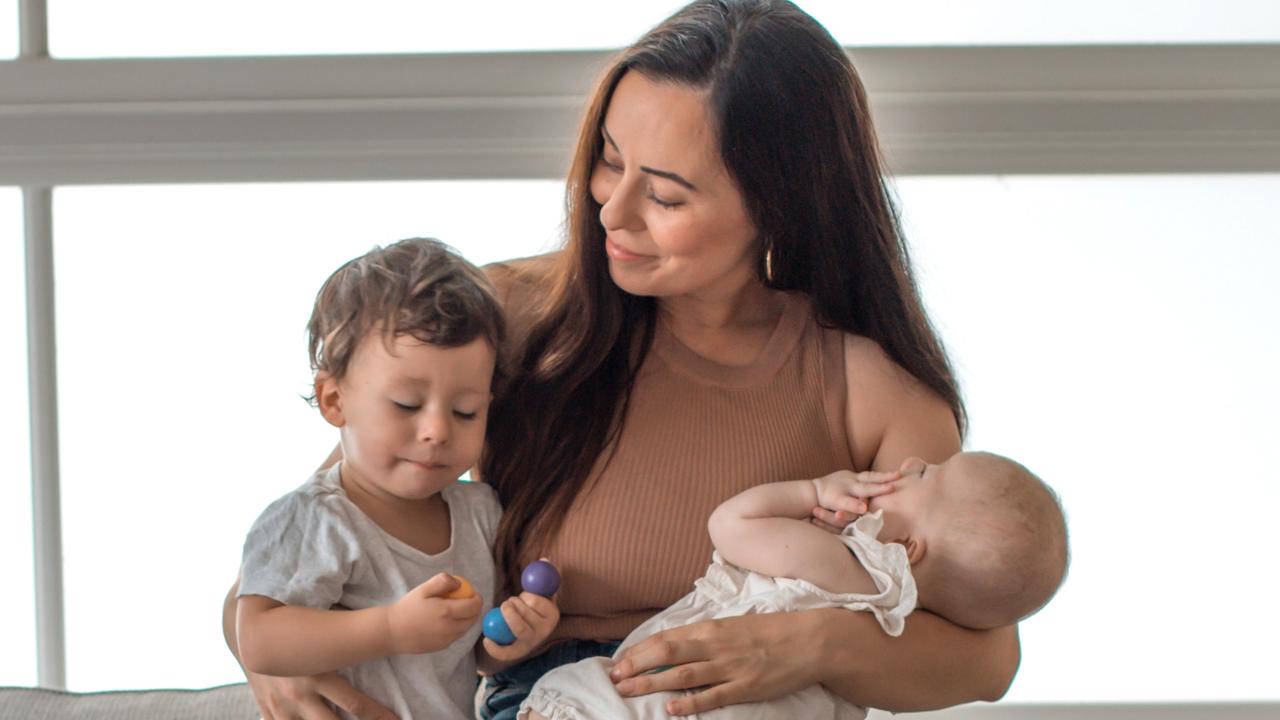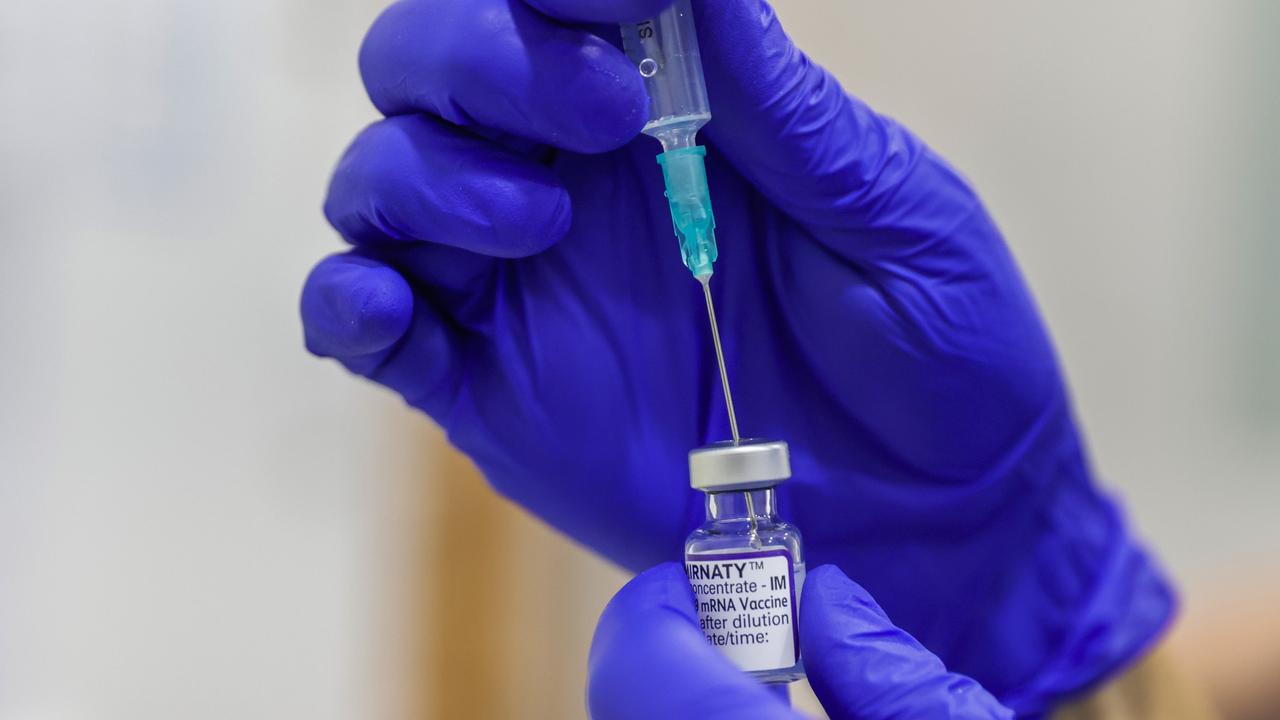Exclusive look at the lab making AstraZeneca’s COVID vaccine in Sydney
The Australian-made AstraZeneca vaccine is midway through production of 30 million doses. The Sunday Telegraph was given an exclusive look at the local operation.
NSW Coronavirus News
Don't miss out on the headlines from NSW Coronavirus News. Followed categories will be added to My News.
Giant frigid cryo-vaults, labs working 24 hours a day, and complex sets of purity and potency testing — The Sunday Telegraph has been given an exclusive insight into the Sydney production of the Oxford University AstraZeneca vaccine which will be vital to the return to some sort of normal life in Australia.
Multinational specialty biotechnology company CSL’s Broadmeadow plant is at the heart of the Australian production of an estimated 30 million doses of the vaccine.
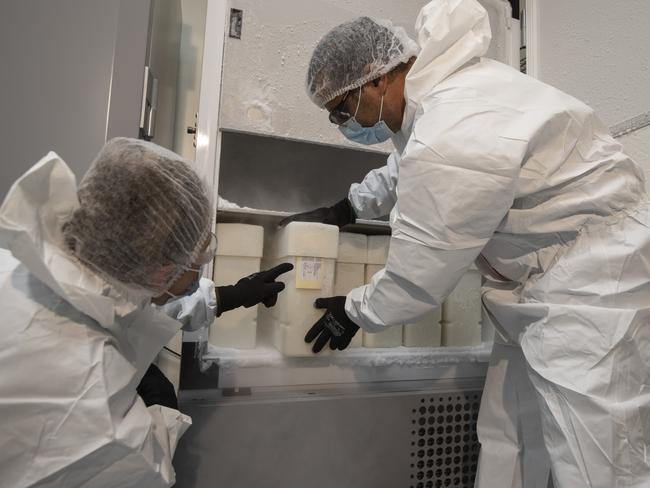
biotechnology company CSL’s Broadmeadow plant.
The federal government has pre-purchased 3.8 million doses of the AstraZeneca vaccine, technically referred to as AZD1222, which will be available for rollout in late February, but the home-grown version of the vaccine will take longer.
“We’re about halfway through the original 30 million doses we had the order for, producing the bulk product,” Chris Larkins, senior vice-president operations at Seqirus, CSL’s packaging arm, said.
He said CSL was on track to deliver the locally manufactured product around June. The process of turning the “bulk product” into a vaccine ready to be jabbed is painstakingly complex, despite “aggressive timelines” placed on production.
The frozen vaccine in concentrated form is contained in 16 litre bags and each must be tested before transfer to CSL’s influenza vaccine business in Parkville, in Melbourne, for the next step in the production chain.
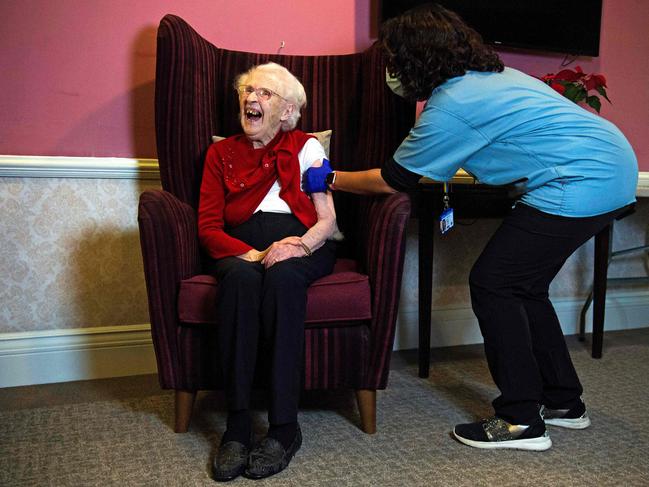
“After we do testing of those batches they will be transferred out to our Parkville site where we will do formulation, where we dilute it to the right level of the dose and we add a number of ingredients to keep the product stable as a vaccine,” Mr Larkins said.
“We call that step formulation and do that into large 200 litre bags, and at that point we must sterilise the product because what goes into the final glass vials will be a sterile product and then we file it into small vials with 10 doses.
“Then, the product testing is the final process. We take some vials from every batch we make and send them to labs for a barrage of tests focused on sterility and purity and potency. We need the product to be pure.
“There are over a dozen different tests done on that final product before we release any batches.”
The Therapeutic Goods Administration (TGA) is yet to approve the vaccine, despite its use in the UK.
“Other regulators have approved AZD1222 on an emergency use basis, whereas in Australia the TGA is evaluating vaccine submissions under its Provisional Approval pathway and, if approved, results in an early market authorisation decision with conditions,” a spokeswoman from AstraZeneca said.
RICH BUYING VACCINES WHILE POOR LEFT TO WAIT
The World Health Organisation has called on wealthy countries to stop acting like desperate shoppers in the toilet paper aisle and buying up all the available doses of COVID-19 vaccine.
The pandemic is picking up speed, with 14 per cent more cases reported globally per day this week compared to the previous week.
As a result, much of the world has been racing to grab vaccines.
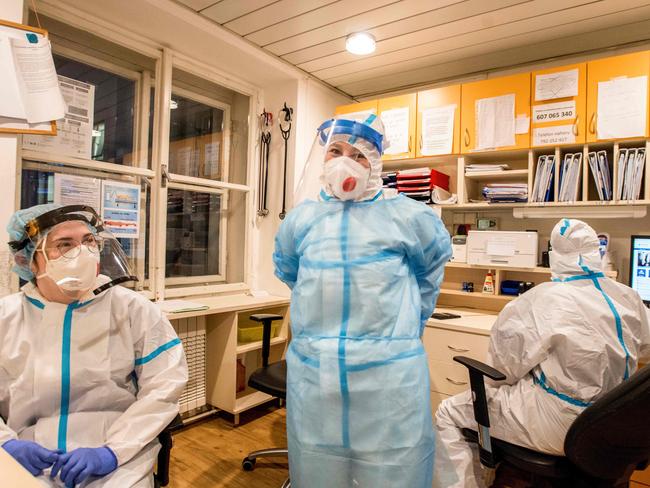
The European Union has announced a deal for another 300 million jabs from Pfizer/BioNTech, doubling its supply of the drug.
But there might be some doses going spare in France, which is now paying the price for not clamping down on its powerful anti-vax movement.
A poll at the end of 2020 found only 40 per cent of French people planned to get inoculated.
Even in the face of rising case numbers, a new poll on Friday showed that figure was still an appallingly low 56 per cent.
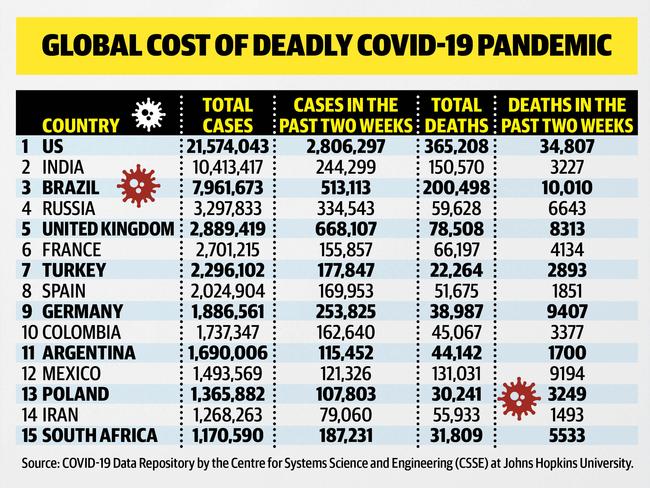
Britain, meanwhile, approved its third vaccine on Friday, from US firm Moderna, and is rushing to vaccinate as many people as possible.
It reported a record death toll of 1325 on Friday, while London Mayor Sadiq Khan declared the capital was “at crisis point” and about to run out of hospital beds.
The news came as WHO called on rich countries to let poorer countries have some vaccines.
WHO’s Covax program head Bruce Aylward said: “Fifty per cent of the high-income countries in the world are vaccinating today. Zero per cent of the low-income countries are vaccinating. That is not equitable.”
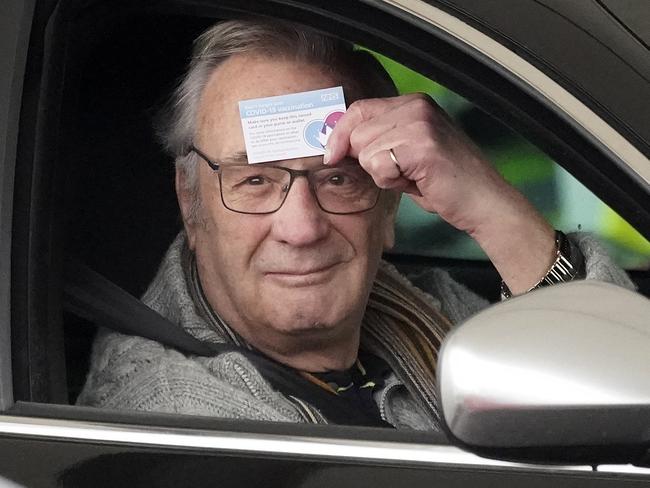
But there was also scandal for WHO, which is already struggling to get permission from China to let a team inside to investigate the origins of COVID-19.
Francesco Zambon, a WHO co-ordinator based in Venice, said his 102-page report into Italy’s failures to contain the virus was withdrawn to avoid embarrassing Ranieri Guerra, a senior WHO official who was previously a key player in Italy’s pandemic planning.
Mr Guerra, now a WHO assistant director-general, denies any wrongdoing.
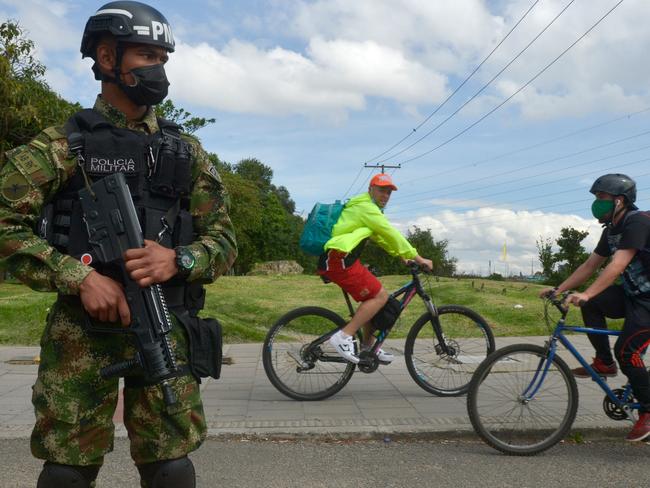
In positive news, fears have been rising over the new British and South African mutations of the virus, but BioNTech has announced its vaccine is effective against these strains.
However, that is scant comfort for those infected in Iran.
Iran’s supreme leader Ayatollah Ali Khamenei banned the import of US and British-produced vaccines, saying they were “completely untrustworthy”.
He tweeted: “It’s not unlikely they would want to contaminate other nations”.
Iran has reported more than 1.2 million cases.
China, the source of the virus, has now sealed off two cities and imposed travel restrictions on 18 million people after uncovering 127 cases
And Sweden, which controversially avoided lockdowns, has passed a law giving the government stronger new powers to impose restrictions.

